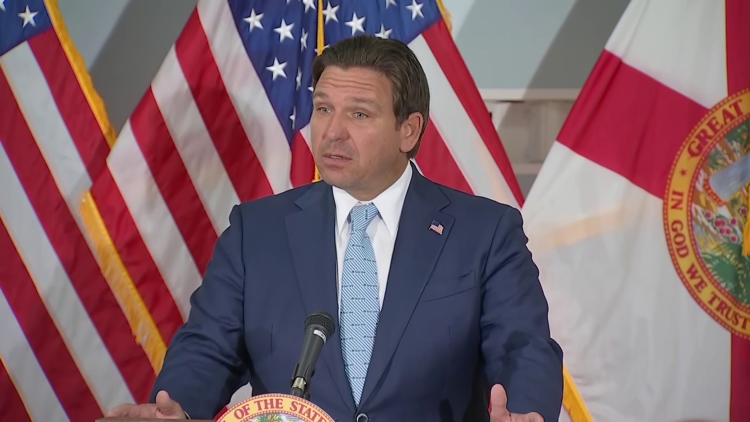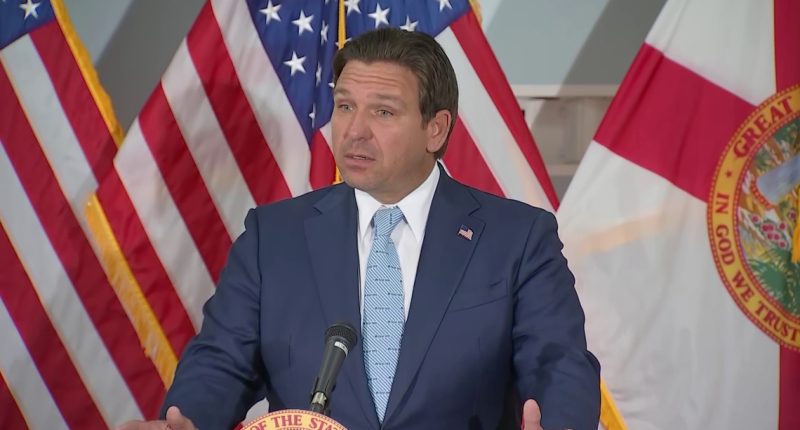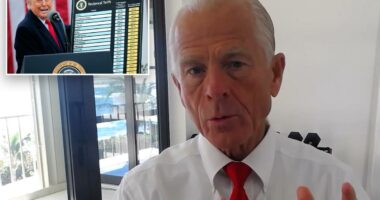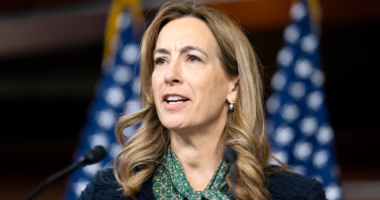Share this @internewscast.com

The current legislation bars lawsuits by unmarried adults over the age of 25 and their parents for pain and suffering related to deaths resulting from medical malpractice.
FORT MYERS, Fla. — Florida Gov. Ron DeSantis will veto a proposed bill intended to overturn the so-called “Free Kill” law, which restricts specific individuals from filing medical malpractice lawsuits in cases of family member deaths.
The governor, who had previously expressed his disapproval, confirmed his decision during a Thursday morning news conference in Fort Myers alongside the state’s Surgeon General, Dr. Joe Ladapo.
The controversial 1990 law carves out a group of people — those who are not married, over 25 and have no kids under 25. If they die due to medical malpractice, no one can sue on their behalf for pain and suffering damages.
The governor said just two weeks ago that he would not sign the bill to repeal the law because it would cause malpractice insurance premiums to go up and it would make it harder to hire doctors.
“It would lead to higher costs for Floridians. It would lead to less access to care in Florida. It would make it harder for us to keep, recruit and maintain physicians in the state of Florida,” DeSantis said at the news conference.
The bipartisan bill passed with a 33-4 vote in the Senate and 104-6 in the House. It would have removed the part of the existing law that excludes certain people from recovering damages from a medical malpractice lawsuit.
The legislation would have allowed adult children over 25 and parents of adult children over 25, who don’t have a surviving spouse or other dependents, to recover non-economic damages.
At the news conference, DeSantis said the bill would “open the floodgates” for lawsuits filed against doctors who “weren’t necessarily negligent.”
Instead, he suggested alternative approaches such as implementing caps on non-economic damages since that “incentivizes” more litigation.
Ladapo agreed with the governor and said there need to be limitations on damages awarded.
“Frankly, it’s insane to have a system with no caps on non-economic damages and expect for that system to continue to sustain itself and function as it was intended to function, which is to provide care to patients,” the surgeon general said.
Sabrina Davis, who could not sue after her father died as a result of medical malpractice, previously told our investigative reporters that Florida would continue to “provide sanctuary to bad medicine,” if the governor vetoed the bill.
“Families don’t want a multimillion-dollar verdict so they can get rich. They want a process that says ‘This life is valuable and you took it from me.’ When families don’t have access to the court, there is no accountability,” she said, in part.
The Florida House has the option to hold a vote to override the veto with a two-thirds requirement. If an override passed the House, the Senate would then have the option to take an override vote with the same two-thirds requirement.
State Sen. Clay Yarborough, who introduced the Senate version of the bill, said while he “wanted to see the bill become law,” he accepts the governor’s decision.
“For me, this discussion has always been about the dignity and the inherent, God-given value of every human life. While no sum of money can replace the loss of life, our laws should not place some lives at a higher value than others when it comes to the profound and lasting impact of medical negligence on a family,” Yarborough’s statement read, in part.
He added that he is not advocating for a veto override for this bill.
“I want to be clear with everyone that I am not advocating for a veto override. There is certainly a place for overrides as contemplated in our Constitution. However, the Governor has an important role in policy changes for our state and I believe his perspective on this issue should be reflected in our laws,” Yarborough continued.

















